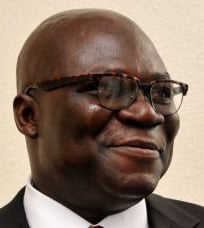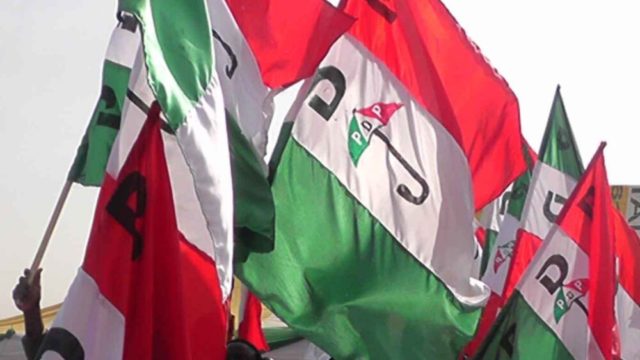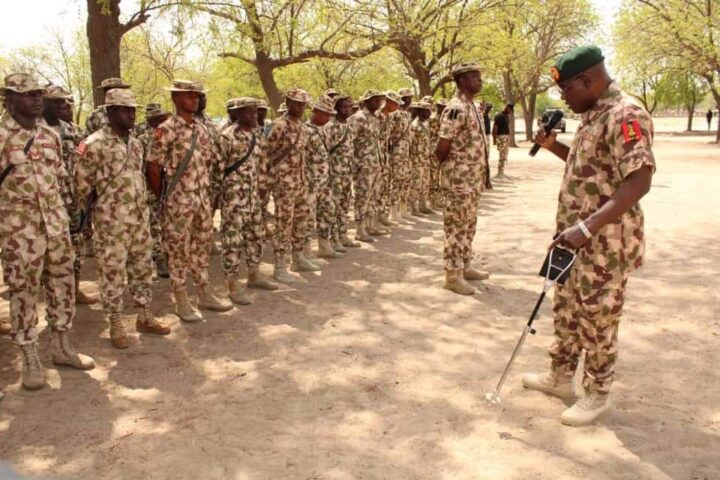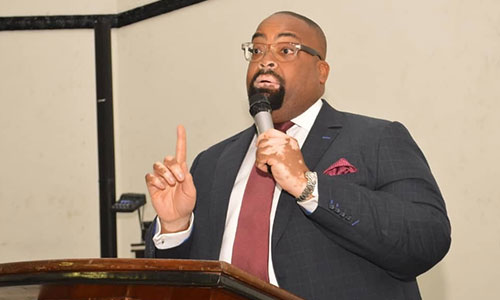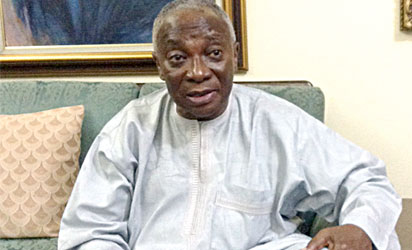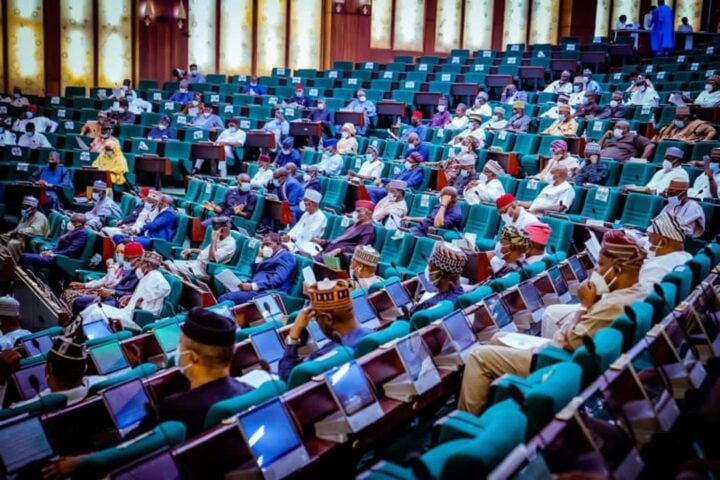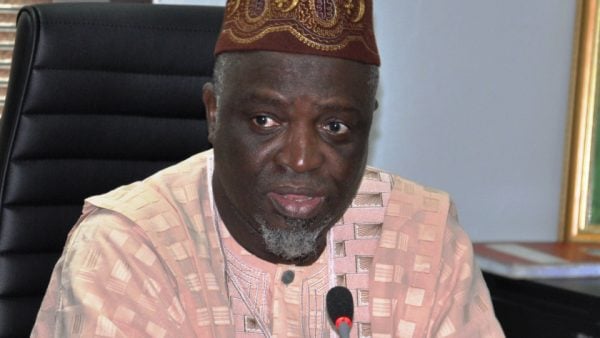The People’s Democratic Party (PDP), Nigeria’s main opposition party, is currently in the throes of a commotion that threatens to destroy the party’s capability to put up any strong showing in the 2023 general elections. Party stakeholders argue that there are enough strong internal mechanisms that would rescue the party and restore it to good health, but those mechanisms do not seem to be working. It may not be too long before the party finds itself on oxygen support, as it struggles with a self-inflicted ailment that is threatening to become a pandemic.
At the height of its power, the PDP was in charge of Nigeria as the dominant political party for 16 years: the party that produced Presidents Olusegun Obasanjo (1999 -2007), Umaru Musa Yar’Ádua (2007 -2010) and Goodluck Jonathan (2010 -2015). In 1999, with the return to democratic rule, the PDP held 214 seats in the House of Representatives. This increased to 263 in 2007, but dropped to 208 and later 137 in 2011. As of 2007, the party controlled 28 states, and 87 seats in the Senate, this dropped to 71 seats in 2011. That same year, PDP was left with 23 Governors. Up till 2011, it controlled 23 states of the Federation out of 36, plus the FCT. Today, the PDP is a minority party although it bears the comforting title of Nigeria’s major opposition party. The changing fortunes of the PDP in terms of its scope of control over the legislative and executive arms of government indicated a greater crisis.
The best illustration of this was how the party lost the 2015 general elections to an emergent Special Purpose Vehicle called the All Progressives Congress (APC) – an association of strange political bedfellows whose only ambition was to put an end to the Jonathan administration and the PDP’s continued stay in power. By the time the 2015 elections ended, PDP lost the Presidency. It was down to 13 PDP Governors. It also lost its majority status in the National Assembly. Many of its leaders abandoned the party. They include Alhaji Adamu Muazu, then Chairman of the PDP, former Chairman of the party, Alhaji Bamanga Tukur and former Chairman of the Board of Trustees, Mr-Fix-It, Chief Anthony Anenih. In 2015, the PDP could not fix anything. Much damage had been done earlier to the party when former President Olusegun Obasanjo who served for eight years as President under the platform of the PDP publicly directed that his party membership should be torn into pieces.
There have been many theories as to why the PDP lost steam and eventually the 2015 General elections. The commonest submission is that after 16 years in office, the party could not manage its success, or that the party had been taken over by those who wanted a Northern President and no-second-term for Jonathan or nothing. But whereas one side of the story does not usually capture the full scope of a manifold experience, it was true that the PDP was sabotaged by the crisis of internal democracy, and the many tendencies within the party pursuing their own narrow interests without a thought for the future. The eventual pain that the party suffered was self-inflicted. The party played into the hands of both fifth columnists and the opposition. It will be recalled that in August 2013, the Convention of the party at the Eagle Square in Abuja witnessed an unusual spectacle.
Advertisement
Former Vice President Atiku Abubakar, and the governors of Adamawa, Kwara, Sokoto, Jigawa, Kano, Rivers, and Niger and all their delegates walked out of the Convention in anger. They later reconvened at the Yar’Ádua Centre to address a press conference. The issue at stake was the election of persons into the 17-member National Working Committee of the party. The Convention continued, but the party was already split down the ranks. This was the incident that led to the emergence of a new PDP, which became a partner in the APC Coalition, and it was widely believed that other aggrieved persons that did not walk away on that occasion, chose to remain within the party to wreak havoc. Alhaji Bamanga Tukur who was Chairman of the party at the time, lost his position to the crisis and was replaced by former Governor, Adamu Muazu who was hailed as “the game changer.” Indeed, the game changed for the PDP. But could the party have survived the 2015 election if there was greater cohesion among its ranks?
It was perhaps in sober realization of this and the fact that many PDP candidates who initially won during the 2015 general election eventually lost their positions at the election petition tribunals and the courts, that the party now decided to do an audit of the 2015 general elections. In November 2015, the party held a National Conference in Abuja on “The Sustenance of Democratic Ideals in Nigeria.” As the party grappled with its post-election crisis, Prince Uche Secondus from Rivers State, emerged as the party’s Acting National Chairman. Still, the party was not yet out of the woods. Secondus was challenged in Court by Hon Ahmed Gulak who asked the court to remove Secondus because the position he occupied had been zoned to the North East. Justice Hussain Baba-Yusuf who presided over the case ruled in Gulak’s favour and sacked Secondus – who along with the PDP appealed the judgment. The party was under heavy pressure on all fronts. It lost the Kogi Gubernatorial election to the APC. It had issues with the Gubernatorial election in Bayelsa state. Key officials of the party and those who served in the Jonathan administration were subjected to heavy harassment, policing and interrogation by the new APC government. The APC accused the PDP and the Jonathan administration of being the cause of Nigeria’s woes. Oil prices had dipped. The country faced both revenue and debt crises. It would soon slip into recession.
Later, in 2016, the PDP held a National Convention at the Sharks Stadium in Port Harcourt. It was an exercise in chaos as the party was before then divided between supporters of the incumbent Chair of the National Working Committee Ali Modu Sheriff and other members of the party. Sheriff left Port Harcourt in a huff, brandishing a court injunction that was ignored. It was the same Port Harcourt Convention that produced former Governor Ahmed Makarfi as Chair of a National Caretaker Committee. The party never recovered from the tussle for legitimacy between the Sheriff and Makarfi factions. In December 2017, the PDP held yet another National Convention which led to the emergence of Prince Uche Secondus as Chairman of the National Working Committee. But the seeds of discord and division that had been sown within the party had germinated, and grown leafy branches. Each time there had been a conflict within the party, the leaders tend to focus more on the party at the national level. They overlook the damage that had been done down the line, all the way to the wards, states and local councils. Before 2015, PDP was the party of choice for many Nigerians. The crisis at the Eagle Square in 2013, the loss of the 2015 general election, and the inability to pull the party back from the brink merely created greater tension from top to bottom. In 2019, the PDP practically donated the election to the APC. The APC won in many states, not because it could boast of a better record of performance but because the PDP was yet to wean itself from the politics of ego and personality conflicts.
Advertisement
Less than two years to the 2023 general elections, the party’s leaders have started again. They seem not to have learnt any lessons from the past. At a time the party should be organizing and strategizing to take power from the APC, and provide Nigerians with an alternative that they badly need now more than ever, they are busy promoting the perception that there isn’t much difference between the PDP and the APC. The way the PDP is managing its politics, it will end up donating the 2023 Presidency to the APC. Governors are major stakeholders in every Nigerian political party. They control the constituencies. They are overlords in charge of the wards and organs of the party in their states. They do and undo. And that is why in the PDP today, the main conflict is between a governor (Governor Nyesom Wike of Rivers) and the party Chairman, (Prince Uche Secondus). Once upon a time, they were bosom friends but not anymore. Party members are taking sides. Some are defecting to other parties for both personal and pragmatic reasons. The future of the party as a dominant vote-winning machine hangs in the balance. The party is back to where it was in 2013 before the 2015 elections, and where it was in 2016 before the 2019 election.
I make these comments as someone who experienced and witnessed first-hand in 2014/15 and again in 2018/2019 how the stubbornness of political gladiators can sabotage a political party’s chances. I was the Deputy Gubernatorial candidate of the PDP in Ogun State in the 2019 elections. A year to that election, it was widely believed that the State Gubernatorial election would be won by the PDP. The APC in Ogun State was practically in disarray. It had split into factions. The incumbent Governor did not support the candidate of his own party. The PDP, was also similarly divided, a victim of the Modu Sheriff/Makarfi factionalisation of the party at the centre. Both factions were in and out of court till three days to the election. When eventually the court ruled in favour of the Buruji Kashamu faction, it was expected that other stakeholders would respect the agreement that was reached earlier that whoever won in court would be supported and outstanding matters would be resolved after the party had achieved the objective of beating the APC at the polls. Meetings were held. Leaders of the various factions waved the olive branch. But as it happened, within 24 hours after the court judgment that favoured the Kashamu faction, those who swore that the party was more important to them than their own interests had dissolved into either the APC or its break-away faction, the Allied People’s Movement (APM). Their conspiracy cost the party dearly.
The point cannot be overstated that politicians in Nigeria do not believe in anything other than their own ambitions. In our political parties, the Machiavellian ethos reigns supreme. Nigeria’s political party system is underdeveloped, driven as it is by all the ugly narratives of the Nigerian experience. Today, in the PDP, after the cliché that the party’s internal mechanisms would be used to resolve the crisis, the other thing you hear is that the APC is trying to sabotage the party, and yet no one can say exactly how the APC is responsible for the collapse of amity between the Chairman of the party and the Governor of Rivers State and others. Secondus is a tested fighter. Wike is a man of courage who likes to win wars. Both gladiators know each other too well. All the persons taking sides in their matter are actually the ones who want to destroy the party. Secondus and Wike are allowing themselves to be used by forces that they met in the course of their political journey from the creeks of the Delta to the blinding heights of Abuja. They both owe themselves a duty to resolve whatever differences they may have. They have both helped each at various times in the past. They can both help the PDP now by burying the hatchet! What does Wike want? Does he want to be a President or Vice-Presidential candidate in 2023 or a Godfather? What does Uche Secondus want? Does he want to have a say in who becomes the standard bearer of the PDP in 2023? Or does he want to succeed Wike as Governor of Rivers State? They should not allow their personal ambitions to ruin many years of friendship and brotherhood and should not drag down the party. Enough damage has been done already. Although APC leaders have more serious problems of their own, they must be in one corner laughing with all corners of their mouth. The worst legacy Secondus can leave behind is to hand over the 2023 general elections to the APC on a platter of gold.
The other problem are those lawyers running from Port Harcourt to Kebbi and to Calabar, all in one week, to secure orders ex parte to ensure the removal of Secondus from office. For many Nigerian lawyers, every election season, before, during and after, is the season for them to eat, to make money. They forget the standards and ethics of the profession and transform into ambulance chasers, looking for any desperate politician who needs an injunction from the courts to gain advantage over a rival. Lawyers are trained to be officers in the temple of justice and respect established procedures. It is one of the reasons why since 1985, every Chief Justice of Nigeria and virtually every Chief Judge of the Federal High Court has warned against the abuse of interim orders ex parte, which is a remedy in civil law procedure that is expected to be given under circumstances of a real urgency. But many judges have turned such orders into an opportunity to jump into the ugly arena of dirty, partisan, politics. They promote personal interests in the process and bring the judiciary to ridicule.
Advertisement
In the on-going PDP crisis, judges presiding over the same courts of co-ordinate jurisdiction have been granting injunctions with appellate import which amounts to an abuse of the justice system. It is shameful and reprehensible. I understand, however, that the CJN has now summoned about six Chief Judges whose courts have been involved in this abuse with regard to the PDP case and election matters in Anambra, Jigawa and Imo. Judges must be restrained and lawyers must be called to order. The judiciary is the last hope of the common man. If it is turned into the playground of profiteers and desperate politicians, the heavy cost will be borne by the entire society. But while it is good to hear that CJN Ibrahim Tanko Muhammed is making efforts to remind the judges involved of established directives, is it not the case that the CJN himself emerged as a beneficiary of a controversial ex parte order on the basis of which the Federal Government removed Walter Onnoghen, CJN (as he then was) before appointing him in his place? Nigeria is never in short supply of ironies.
Views expressed by contributors are strictly personal and not of TheCable.
Add a comment
